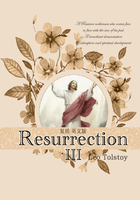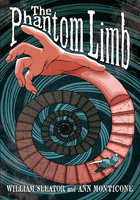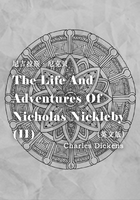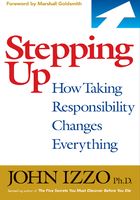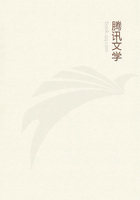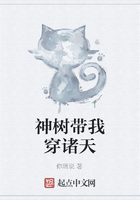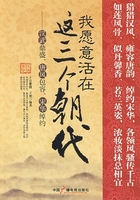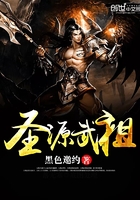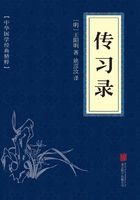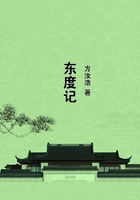We were now all upon a level as to our travelling, being unshipped, for our bark would swim no farther, and she was too heavy to carry on our backs; but as we found the course of the river went a great way farther, we consulted our carpenters whether we could not pull the bark in pieces, and make us three or four small boats to go on with. They told us we might do so, but it would be very long a-doing; and that, when we had done, we had neither pitch or tar to make them sound to keep the water out, or nails to fasten the plank. But one of them told us that as soon as he could come at any large tree near the river, he would make us a canoe or two in a quarter of the time, and which would serve us as well for all the uses we could have any occasion for as a boat; and such, that if we came to any waterfalls, we might take them up, and carry them for a mile or two by land upon our shoulders.
Upon this we gave over the thoughts of our frigate, and hauling her into a little cove or inlet, where a small brook came into the main river, we laid her up for those that came next, and marched forward. We spent indeed two days dividing our baggage, and loading our tame buffaloes and our negroes. Our powder and shot, which was the thing we were most careful of, we ordered thus:-First, the powder we divided into little leather bags, that is to say, bags of dried skins, with the hair inward, that the powder might not grow damp; and then we put those bags into other bags, made of bullocks' skins, very thick and hard, with the hair outward, that no wet might come in; and this succeeded so well, that in the greatest rains we had, whereof some were very violent and very long, we always kept our powder dry. Besides these bags, which held our chief magazine, we divided to every one a quarter of a pound of powder, and half a pound of shot, to carry always about us; which, as it was enough for our present use, so we were willing to have no weight to carry more than was absolutely necessary, because of the heat.
We kept still on the bank of the river, and for that reason had but very little communication with the people of the country; for, having also our bark stored with plenty of provisions, we had no occasion to look abroad for a supply; but now, when we came to march on foot, we were obliged often to seek out for food. The first place we came to on the river, that gave us any stop, was a little negro town, containing about fifty huts, and there appeared about 400 people, for they all came out to see us, and wonder at us. When our negroes appeared the inhabitants began to fly to arms, thinking there had been enemies coming upon them; but our negroes, though they could not speak their language, made signs to them that they had no weapons, and were tied two and two together as captives, and that there were people behind who came from the sun, and that could kill them all, and make them alive again, if they pleased; but that they would do them no hurt, and came with peace. As soon as they understood this they laid down their lances, and bows and arrows, and came and stuck twelve large stakes in the ground as a token of peace, bowing themselves to us in token of submission. But as soon as they saw white men with beards, that is to say, with mustachios, they ran screaming away, as in a fright.
We kept at a distance from them, not to be too familiar; and when we did appear it was but two or three of us at a time. But our prisoners made them understand that we required some provisions of them; so they brought us some black cattle, for they have abundance of cows and buffaloes all over that side of the country, as also great numbers of deer. Our cutler, who had now a great stock of things of his handiwork, gave them some little knick-knacks, as plates of silver and of iron, cut diamond fashion, and cut into hearts and into rings, and they were mightily pleased. They also brought several fruits and roots, which we did not understand, but our negroes fed heartily on them, and after we had seen them eat them, we did so too.
Having stocked ourselves here with flesh and root as much as we could well carry, we divided the burthens among our negroes, appointing about thirty to forty pounds weight to a man, which we thought indeed was load enough in a hot country; and the negroes did not at all repine at it, but would sometimes help one another when they began to be weary, which did happen now and then, though not often; besides, as most of their luggage was our provision, it lightened every day, like Aesop's basket of bread, till we came to get a recruit.-Note, when we loaded them we untied their hands, and tied them two and two together by one foot.
The third day of our march from this place our chief carpenter desired us to halt, and set up some huts, for he had found out some trees that he liked, and resolved to make us some canoes; for, as he told me, he knew we should have marching enough on foot after we left the river, and he was resolved to go no farther by land than needs must.
We had no sooner given orders for our little camp, and given leave to our negroes to lay down their loads, but they fell to work to build our huts; and though they were tied as above, yet they did it so nimbly as surprised us. Here we set some of the negroes quite at liberty, that is to say, without tying them, having the prince's word passed for their fidelity; and some of these were ordered to help the carpenters, which they did very handily, with a little direction, and others were sent to see whether they could get any provisions near hand; but instead of provisions, three of them came in with two bows and arrows, and five lances. They could not easily make us understand how they came by them, only that they had surprised some negro women, who were in some huts, the men being from home, and they had found the lances and bows in the huts, or houses, the women and children flying away at the sight of them, as from robbers. We seemed very angry at them, and made the prince ask them if they had not killed any of the women or children, making them believe that, if they had killed anybody, we would make them kill themselves too; but they protested their innocence, so we excused them. Then they brought us the bows and arrows and lances; but, at a motion of their black prince, we gave them back the bows and arrows, and gave them leave to go out to see what they could kill for food; and here we gave them the laws of arms, viz., that if any man appeared to assault them, or shoot at them to offer any violence to them, they might kill them; but that they should not offer to kill or hurt any that offered them peace, or laid down their weapons, nor any women or children, upon any occasion whatsoever. These were our articles of war.
These two fellows had not been gone out above three or four hours, but one of them came running to us without his bow and arrows, hallooing and whooping a great while before he came at us, "Okoamo, okoamo!" which, it seems, was, "Help, help!" The rest of the negroes rose up in a hurry, and by twos, as they could, ran forward towards their fellows, to know what the matter was. As for me, I did not understand it, nor any of our people; the prince looked as if something unlucky had fallen out, and some of our men took up their arms to be ready on occasion. But the negroes soon discovered the thing, for we saw four of them presently after coming along with a great load of meat upon their backs. The case was, that the two who went out with their bows and arrows, meeting with a great herd of deer in the plain, had been so nimble as to shoot three of them, and then one of them came running to us for help to fetch them away. This was the first venison we had met with in all our march, and we feasted upon it very plentifully; and this was the first time we began to prevail with our prince to eat his meat dressed our way; after which his men were prevailed with by his example, but before that, they ate most of the flesh they had quite raw.
We wished now we had brought some bows and arrows out with us, which we might have done; and we began to have so much confidence in our negroes, and to be so familiar with them, that we oftentimes let them go, or the greatest part of them, untied, being well assured they would not leave us, and that they did not know what course to take without us; but one thing we resolved not to trust them with, and that was the charging our guns: but they always believed our guns had some heavenly power in them, that would send forth fire and smoke, and speak with a dreadful noise, and kill at a distance whenever we bid them.
In about eight days we finished three canoes, and in them we embarked our white men and our baggage, with our prince, and some of the prisoners. We also found it needful to keep some of ourselves always on shore, not only to manage the negroes, but to defend them from enemies and wild beasts. Abundance of little incidents happened upon this march, which it is impossible to crowd into this account; particularly, we saw more wild beasts now than we did before, some elephants, and two or three lions, none of which kinds we had seen any of before; and we found our negroes were more afraid of them a great deal than we were; principally, because they had no bows and arrows, or lances, which were the particular weapons they were bred up to the exercise of.
But we cured them of their fears by being always ready with our firearms. However, as we were willing to be sparing of our powder, and the killing of any of the creatures now was no advantage to us, seeing their skins were too heavy for us to carry, and their flesh not good to eat, we resolved therefore to keep some of our pieces uncharged and only primed; and causing them to flash in the pan, the beasts, even the lions themselves, would always start and fly back when they saw it, and immediately march off.
We passed abundance of inhabitants upon this upper part of the river, and with this observation, that almost every ten miles we came to a separate nation, and every separate nation had a different speech, or else their speech had differing dialects, so that they did not understand one another. They all abounded in cattle, especially on the river-side; and the eighth day of this second navigation we met with a little negro town, where they had growing a sort of corn like rice, which ate very sweet; and, as we got some of it of the people, we made very good cakes of bread of it, and, making a fire, baked them on the ground, after the fire was swept away, very well; so that hitherto we had no want of provisions of any kind that we could desire.
Our negroes towing our canoes, we travelled at a considerable rate, and by our own account could not go less than twenty or twenty-five English miles a day, and the river continuing to be much of the same breadth and very deep all the way, till on the tenth day we came to another cataract; for a ridge of high hills crossing the whole channel of the river, the water came tumbling down the rocks from one stage to another in a strange manner, so that it was a continued link of cataracts from one to another, in the manner of a cascade, only that the falls were sometimes a quarter of a mile from one another, and the noise confused and frightful.
We thought our voyaging was at a full stop now; but three of us, with a couple of our negroes, mounting the hills another way, to view the course of the river, we found a fair channel again after about half a mile's march, and that it was like to hold us a good way further. So we set all hands to work, unloaded our cargo, and hauled our canoes on shore, to see if we could carry them.
Upon examination we found that they were very heavy; but our carpenters, spending but one day's work upon them, hewed away so much of the timber from their outsides as reduced them very much, and yet they were as fit to swim as before. When this was done, ten men with poles took up one of the canoes and made nothing to carry it. So we ordered twenty men to each canoe, that one ten might relieve the other; and thus we carried all our canoes, and launched them into the water again, and then fetched our luggage and loaded it all again into the canoes, and all in an afternoon; and the next morning early we moved forward again. When we had towed about four days more, our gunner, who was our pilot, began to observe that we did not keep our right course so exactly as we ought, the river winding away a little towards the north, and gave us notice of it accordingly. However, we were not willing to lose the advantage of water-carriage, at least not till we were forced to it; so we jogged on, and the river served us for about threescore miles further; but then we found it grew very small and shallow, having passed the mouths of several little brooks or rivulets which came into it; and at length it became but a brook itself.
We towed up as far as ever our boats would swim, and we went two days the farther-having been about twelve days in this last part of the river-by lightening the boats and taking our luggage out, which we made the negroes carry, being willing to ease ourselves as long as we could; but at the end of these two days, in short, there was not water enough to swim a London wherry.
We now set forward wholly by land, and without any expectation of more water-carriage. All our concern for more water was to be sure to have a supply for our drinking; and therefore upon every hill that we came near we clambered up to the highest part to see the country before us, and to make the best judgment we could which way to go to keep the lowest grounds, and as near some stream of water as we could.
The country held verdant, well grown with trees, and spread with rivers and brooks, and tolerably well with inhabitants, for about thirty days' march after our leaving the canoes, during which time things went pretty well with us; we did not tie ourselves down when to march and when to halt, but ordered those things as our convenience and the health and ease of our people, as well our servants as ourselves, required.
About the middle of this march we came into a low and plain country, in which we perceived a greater number of inhabitants than in any other country we had gone through; but that which was worse for us, we found them a fierce, barbarous, treacherous people, and who at first looked upon us as robbers, and gathered themselves in numbers to attack us.
Our men were terrified at them at first, and began to discover an unusual fear, and even our black prince seemed in a great deal of confusion; but I smiled at him, and showing him some of our guns, I asked him if he thought that which killed the spotted cat (for so they called the leopard in their language) could not make a thousand of those naked creatures die at one blow? Then he laughed, and said, yes, he believed it would. "Well, then," said I, "tell your men not to be afraid of these people, for we shall soon give them a taste of what we can do if they pretend to meddle with us." However, we considered we were in the middle of a vast country, and we knew not what numbers of people and nations we might be surrounded with, and, above all, we knew not how much we might stand in need of the friendship of these that we were now among, so that we ordered the negroes to try all the methods they could to make them friends.
Accordingly the two men who had gotten bows and arrows, and two more to whom we gave the prince's two fine lances, went foremost, with five more, having long poles in their hands; and after them ten of our men advanced toward the negro town that was next to us, and we all stood ready to succour them if there should be occasion.
When they came pretty near their houses our negroes hallooed in their screaming way, and called to them as loud as they could. Upon their calling, some of the men came out and answered, and immediately after the whole town, men, women, and children, appeared; our negroes, with their long poles, went forward a little, and stuck them all in the ground, and left them, which in their country was a signal of peace, but the other did not understand the meaning of that. Then the two men with bows laid down their bows and arrows, went forward unarmed, and made signs of peace to them, which at last the other began to understand; so two of their men laid down their bows and arrows, and came towards them. Our men made all the signs of friendship to them that they could think of, putting their hands up to their mouths as a sign that they wanted provisions to eat; and the other pretended to be pleased and friendly, and went back to their fellows and talked with them a while, and they came forward again, and made signs that they would bring some provisions to them before the sun set; and so our men came back again very well satisfied for that time.
But an hour before sunset our men went to them again, just in the same posture as before, and they came according to their appointment, and brought deer's flesh, roots, and the same kind of corn, like rice, which I mentioned above; and our negroes, being furnished with such toys as our cutler had contrived, gave them some of them, which they seemed infinitely pleased with, and promised to bring more provisions the next day.
Accordingly the next day they came again, but our men perceived they were more in number by a great many than before. However, having sent out ten men with firearms to stand ready, and our whole army being in view also, we were not much surprised; nor was the treachery of the enemy so cunningly ordered as in other cases, for they might have surrounded our negroes, which were but nine, under a show of peace; but when they saw our men advance almost as far as the place where they were the day before, the rogues snatched up their bows and arrows and came running upon our men like so many furies, at which our ten men called to the negroes to come back to them, which they did with speed enough at the first word, and stood all behind our men. As they fled, the other advanced, and let fly near a hundred of their arrows at them, by which two of our negroes were wounded, and one we thought had been killed. When they came to the five poles that our men had stuck in the ground, they stood still awhile, and gathering about the poles, looked at them, and handled them, as wondering what they meant. We then, who were drawn up behind all, sent one of our number to our ten men to bid them fire among them while they stood so thick, and to put some small shot into their guns besides the ordinary charge, and to tell them that we would be up with them immediately.
Accordingly they made ready; but by the time they were ready to fire, the black army had left their wandering about the poles, and began to stir as if they would come on, though seeing more men stand at some distance behind our negroes, they could not tell what to make of us; but if they did not understand us before, they understood us less afterwards, for as soon as ever our men found them to begin to move forward they fired among the thickest of them, being about the distance of 120 yards, as near as we could guess.
It is impossible to express the fright, the screaming and yelling of those wretches upon this first volley. We killed six of them, and wounded eleven or twelve, I mean as we knew of; for, as they stood thick, and the small shot, as we called it, scattered among them, we had reason to believe we wounded more that stood farther off, for our small shot was made of bits of lead and bits of iron, heads of nails, and such things as our diligent artificer, the cutler, helped us to.
As to those that were killed and wounded, the other frighted creatures were under the greatest amazement in the world, to think what should hurt them, for they could see nothing but holes made in their bodies they knew not how. Then the fire and noise amazed all their women and children, and frighted them out of their wits, so that they ran staring and howling about like mad creatures.

